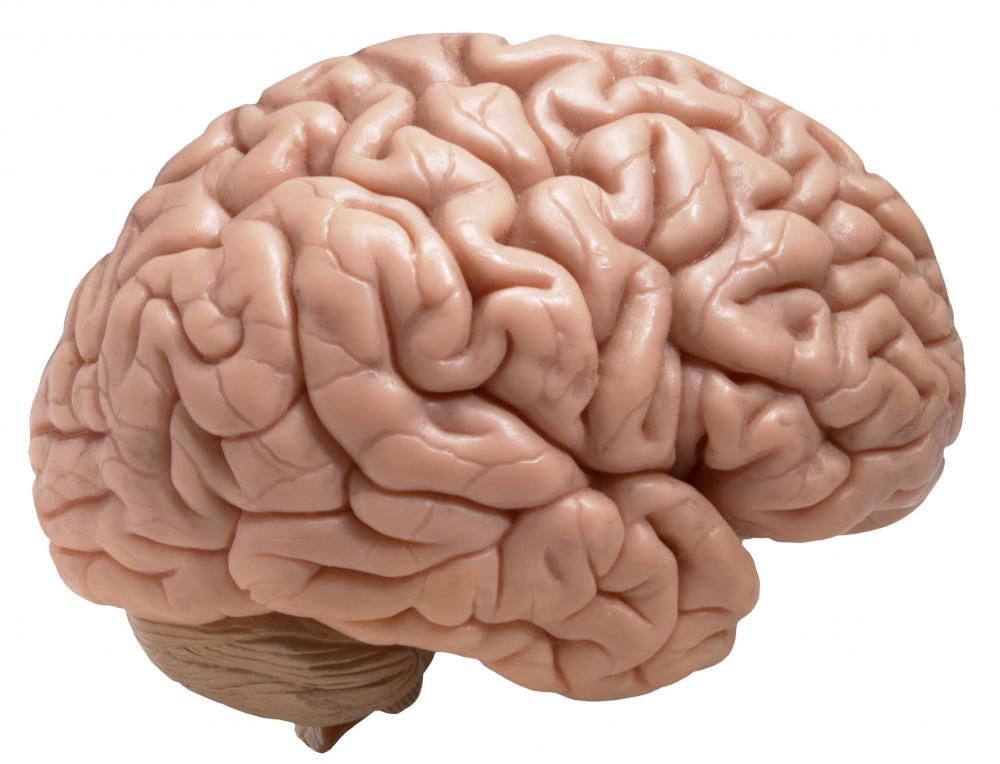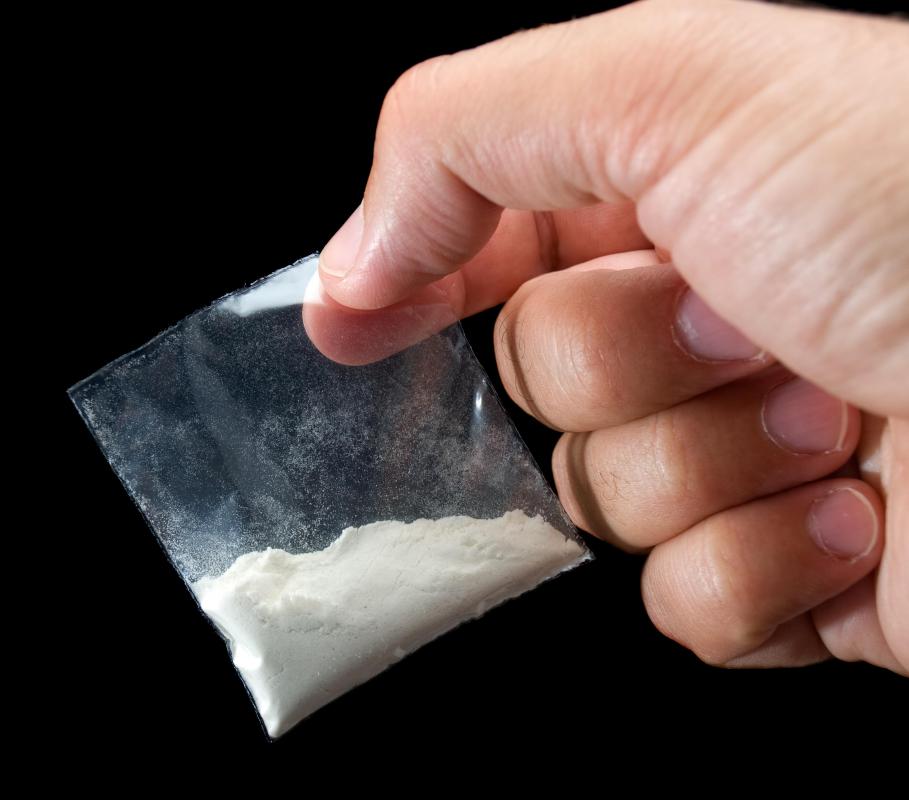At TheHealthBoard, we're committed to delivering accurate, trustworthy information. Our expert-authored content is rigorously fact-checked and sourced from credible authorities. Discover how we uphold the highest standards in providing you with reliable knowledge.
What is the Basal Ganglia?
Located in the middle part of the brain, the basal ganglia is the area of the brain that is responsible for a great deal of motor control and learning. This area works in conjunction with the cerebral cortex and the thalamus to help us make decisions and shift between activities. It consists of the striatum, pallidium, substanta nigra, and the subthalamic nucleus.
The basal ganglia is a vital part of the brain, and is often responsible for neurological problems. Problems in this segment of the brain are responsible for Huntington's disease, Parkinson's disease, obsessive-compulsive disorder, and Tourette's syndrome. Over stimulation of this area may lead to schizophrenia.

Strokes in the basal ganglia area can be devastating. Strokes that affect this area can result in sensory loss, the inability to speak or use language properly, known as aphasia, vision problems, loss of control of movement, paralysis, and coma. Strokes that occur in this part of the brain are typically hemorrhagic strokes, which develop when pressure builds up in the blood vessels leading to a rupture. One of the main causes of strokes in this region is high blood pressure. Anyone that develops symptoms of a stroke should call 911 or find transportation to the closest emergency room. Reducing the time before the onset of treatment after a stroke minimizes the long-term damage.

The basal ganglia has many basic and complex functions in the body. In depth study of the area has occurred because of its relationship with Parkinson's and Huntington's diseases. One of the more interesting factors associated with this portion of the brain is its affect on motivation. The body's response to Parkinson's disease shows some evidence of the effect a damaged basal ganglia has on motivation.

Numerous incidences where patients who were immobile due to Parkinson's disease found, in times of emergency, that the patients were able to extract themselves from a dangerous situation, such as a house fire. These same patients found it impossible to feed themselves.
The basal ganglia's affect on motivation can be witnessed in healthy individuals as well. Eating tasty food and having sex both trigger pleasure responses deep in the brain. This motivation can be helpful, or in some cases, harmful. There is growing evidence that this portion of the brain, which is responsible for feelings of euphoria, and is known as the reward center, is greatly affected by drugs. Drugs such as cocaine and nicotine boost the dopamine receptors in this area of the brain, increasing the payoff of exposure to those substances.
AS FEATURED ON:
AS FEATURED ON:















Discussion Comments
@MrsPramm - To some extent I agree, but the thing is, there are ways to control it. I think when people acknowledge that their impulses stem from chemical reactions in the brain, rather than a real need to have chocolate, it can make it easier to say to yourself, I know my brain is wrong this time, so I'll abstain.
Easier said than done, but it can be done, I think, with practice.
@Iluviaporos - In one of my favorite episodes of House, the patient of the week realized she was starting to slurr her speech and hallucinate and ordered the people around her to call an ambulance, which I thought was cool.
I think it's just too easy for a healthy person to take their brain for granted though. We might know intellectually that it's the basal ganglia pathways that are responsible for our love of chocolate, or whatever, but we don't really understand that it's our brain messing with us that makes us crave chocolate, rather than something we control.
One of the things that always really frustrates me in films is when some character sees something bizarre (like... a talking dog, or whatever the film is about) and freaks out and starts stumbling around and spouting gibberish for what seems like no reason at all to the rest of the cast.
And the other people just shrug it off, or tell him to go home for the day. Honestly, if that happened in real life, that someone starts stumbling and saying weird things, or even seeing weird things, it's not magic (or just them being cute). It's probably a stroke. And it's likely a bad one, seeing as the basal ganglia's function is to govern speech and movement.
Whenever I see that happen in a film, I always tell people around me, don't laugh and humor me if I start doing this. Call an ambulance.
Post your comments